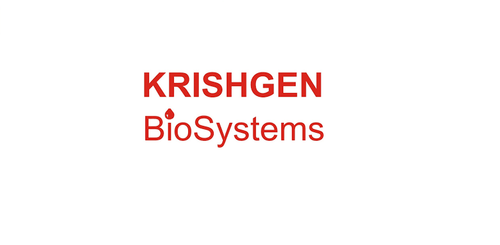Product Description
Mouse Calcium-dependent phospholipase A2 (PLA2G5) ELISA Kit | AE27187MO | Abebio
Species Reactivity: Mouse (Mus musculus)
Abbreviation: PLA2G5
Alternative Name: DKFZp686C2294; GV-PLA2; MGC46205; PLA2-10; hVPLA (2) ; Ca2+-dependent phospholipase A2|phosphatidylcholine 2-acylhydrolase
Application: ELISA
Range: 78-5000 pg/mL
Sensitivity: 31 pg/mL
Intra-Assay: ≤6.2%
Inter-Assay: ≤7.7%
Recovery: 1, 06
Sample Type: Serum, Plasma, Other biological fluids
Detection Method: Sandwich
Analysis Method : Quantitive
Test Principale: This assay employs a two-site sandwich ELISA to quantitate PLA2G5 in samples. An antibody specific for PLA2G5 has been pre-coated onto a microplate. Standards and samples are pipetted into the wells and anyPLA2G5 present is bound by the immobilized antibody. After removing any unbound substances, a biotin-conjugated antibody specific for PLA2G5 is added to the wells. After washing, Streptavidin conjugated Horseradish Peroxidase (HRP) is added to the wells. Following a wash to remove any unbound avidin-enzyme reagent, a substrate solution is added to the wells and color develops in proportion to the amount of PLA2G5 bound in the initial step. The color development is stopped and the intensity of the color is measured.
Product Overview: PLA2G5 is located in a tightly-linked cluster of secretory phospholipase A2 genes on chromosome 1. The encoded enzyme catalyzes the hydrolysis of membrane phospholipids to generate lysophospholipids and free fatty acids including arachidonic acid. It preferentially hydrolyzes linoleoyl-containing phosphatidylcholine substrates. Secretion of this enzyme is thought to induce inflammatory responses in neighboring cells. Alternatively spliced transcript variants have been found, but their full-length nature has not been determined. This isozyme hydrolyzes more efficiently L-alpha-1-palmitoyl-2-oleoyl phosphatidylcholine than L-alpha-1-palmitoyl-2-arachidonyl phosphatidylcholine, L-alpha-1-palmitoyl-2-arachidonyl phosphatidylethanolamine, or L- alpha-1-stearoyl-2-arachidonyl phosphatidylinositol.
Stability: The stability of ELISA kit is determined by the loss rate of activity. The loss rate of this kit is less than 5% within the expiration date under appropriate storage condition. The loss rate was determined by accelerated thermal degradation test. Keep the kit at 37°C for 4 and 7 days, and compare O.D.values of the kit kept at 37°C with that of at recommended temperature. (referring from China Biological Products Standard, which was calculated by the Arrhenius equation. For ELISA kit, 4 days storage at 37°C can be considered as 6 months at 2 - 8°C, which means 7 days at 37°C equaling 12 months at 2 - 8°C) .
 Euro
Euro
 USD
USD
 British Pound
British Pound
 NULL
NULL












